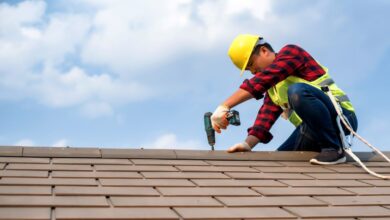What Appliances Consume The Most Electricity At Home?
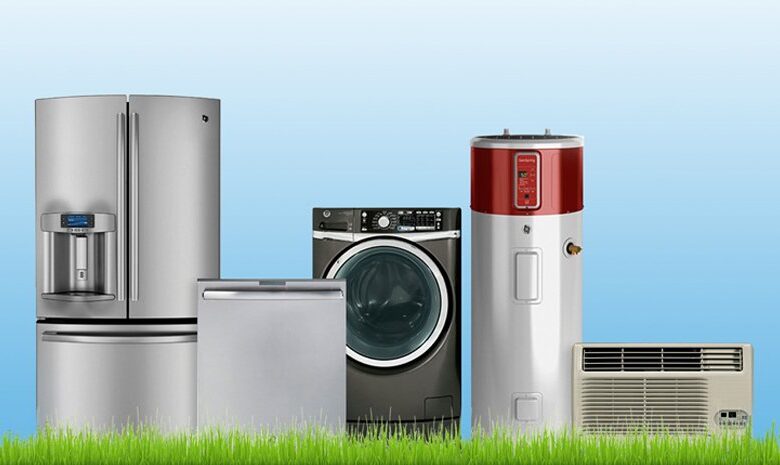
Today, household appliances play a big role in our lives. They assist us in our daily duties—but this comes at a cost. The appliances that we use in our homes require electricity to run, and this means you will need to spend money on electricity bills.
Although some of the appliances in our homes consume a reasonable amount of electricity, some consume a lot of electricity. In this post, we shall assist you to understand some of the appliances that consume most electricity at home.
Heating and cooling appliances
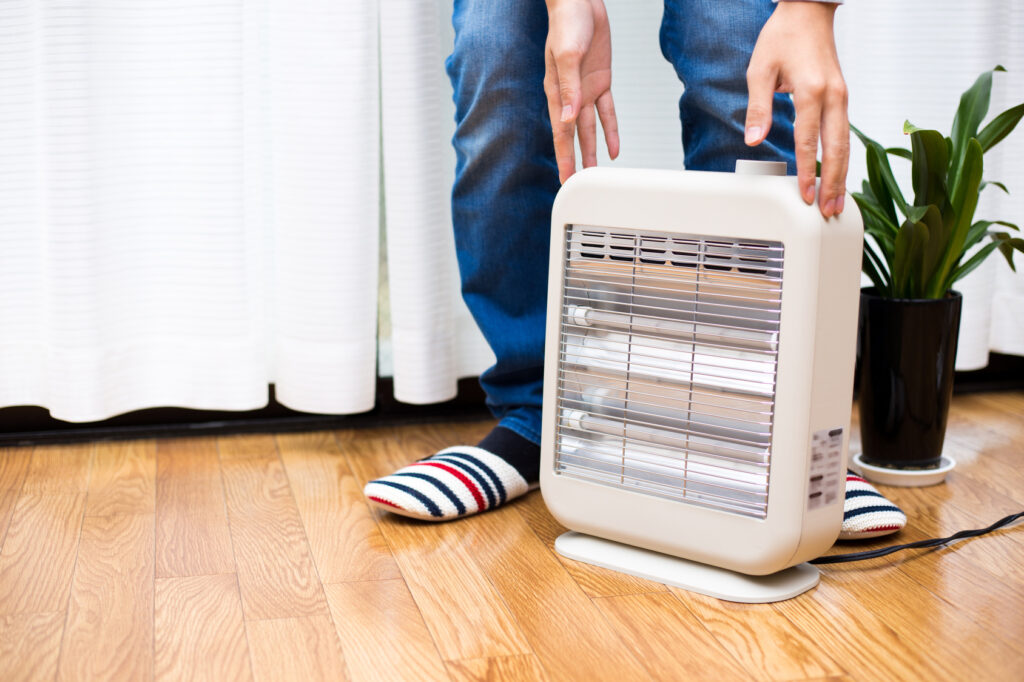 Source: nelsoncomfort.com
Source: nelsoncomfort.com
The heating and cooling appliances in your home consume an average of 25% of electricity in your home. However, not everyone with an HVAC system in their homes incurs these costs. Statistics indicate that people who leave in areas with extreme heat or cold normally spend a lot of money on heating and cooling bills.
Mostly, this happens since they have to leave their air conditioners or heaters running for a long time in their homes. Also, you might realize that your heating and cooling bills are on the rise during the winter or summer seasons. These are the two seasons when most people rely on their air conditioners or heaters to make their homes comfortable for living.
However, it’s still possible to save on these two bills. For instance, you can consider insulating your home. This ensures that you don’t lose a lot of heat—meaning there’s no need to keep your heater running for long. Moreover, you can also consider using other appliances that generate heat—like washing machines, dryers, and ovens. These appliances generate a considerable amount of heat, when in operation. Therefore, they can assist you to cut down on your heating costs.
Also, instead of using an air conditioner to cool your home, you can use other methods. One of the most convenient ways to cool your home is to open windows and use overhead fans. Also, investing in a programmable thermostat can assist in cutting down your energy consumption. This makes sure that your home is heated or cooled to the desired temperature. Therefore, your HVAC appliance will run when needed, thus reducing unwanted energy consumption.
Water heater
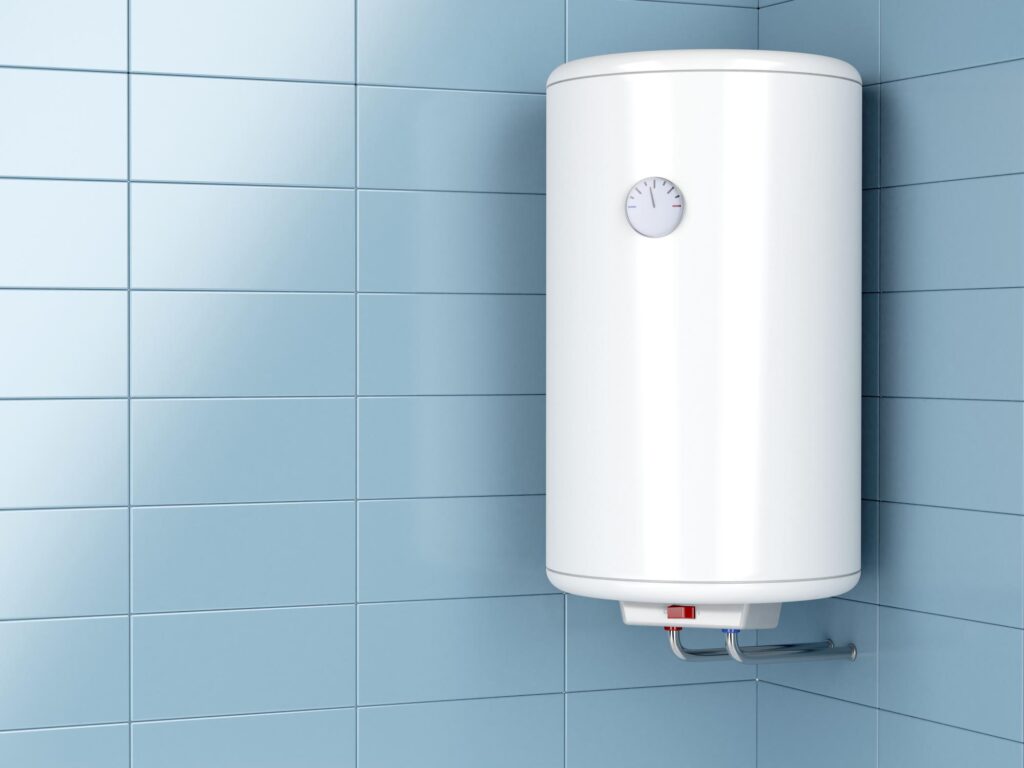 Source: bellinghamplumbingpros.com
Source: bellinghamplumbingpros.com
It’s interesting how this appliance consumes a lot of energy—but not many people realize that. Did you know that your water heater accounts for 15% of the energy consumed in your home? Water heaters come in different types and sizes as well, and they include tank-based and tankless water heaters.
The tank-based water heater requires installation, and the water is heated inside the tank before being distributed to the entire home. As a result, tank-based water heaters tend to consume a lot of electricity. Tankless water heaters, on the other hand, heat water within the appliance. These water heaters require a coil system to heat the water, and this makes them consume substantially less energy compared to tank-based water heaters.
However, water heaters tend to consume a lot of electricity because of their usage. The appliances are used daily, from showers to the kitchen, and washing clothes. So, how can you reduce the energy consumed by these appliances?
First, you need to check on the water temperature of the appliance. Typically, a water heater is preset to 140 degrees F, and that’s what makes them consume a lot of energy. However, it’s still possible to lower the temperature settings if you want to reduce energy consumption.
Moreover, replacing your normal sink faucets and showerheads with low-flow models can help in minimizing your hot water usage. This, in turn, can reduce the possibilities of your water heater running so often to heat the water.
Washers and dryers
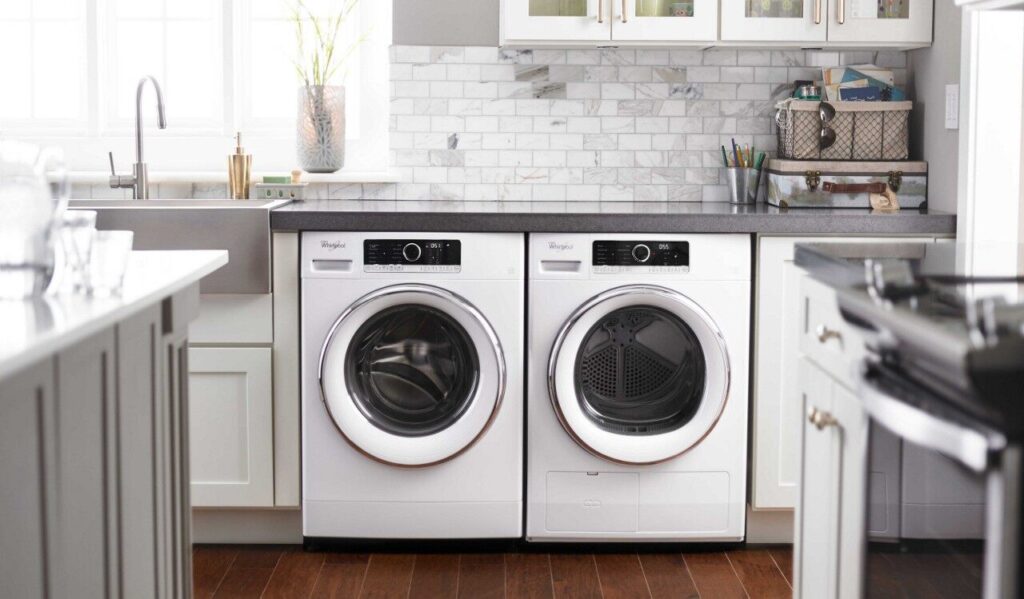 Source: whirlpool.com
Source: whirlpool.com
These are two appliances used regularly in our homes. However, washers and dryers claim up to 13% of your energy bills. Since these machines are used hand-in-hand, there are several ways in which you can reduce their energy consumption.
For instance, when washing your clothes, you can opt for the cold water function, rather than the warm water function—this assists in lowering the workload of the heater. Also, since drying your clothes requires a lot of energy, you can increase its efficiency by cleaning the lint trap before every load.
Furthermore, don’t overfill these appliances, as it prevents them from overworking, which also increase their energy consumption. Lastly, opting to hang your clothes on a line to dry can go a long way in lowering your energy bills.
Refrigerator
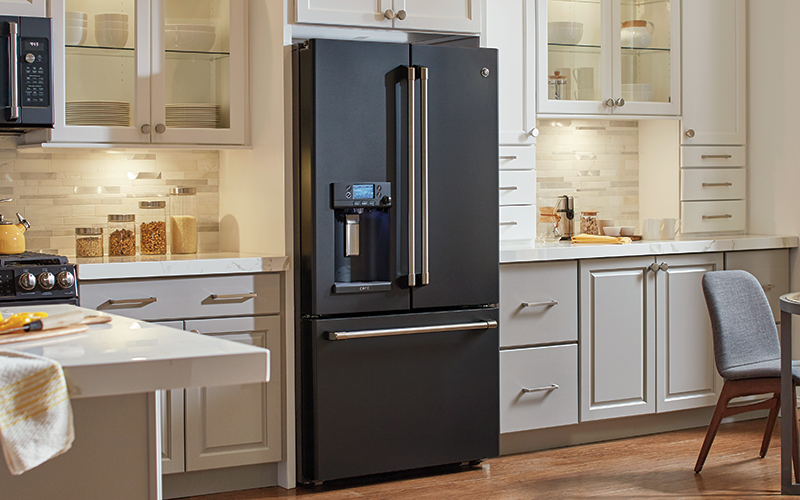 Source: pinterest.com
Source: pinterest.com
Your fridge can consume up to 5% of electricity bills. However, their energy consumption can significantly increase if you are not careful. So, how can you reduce its energy consumption?
First, you should never leave your fridge open. Your refrigerator works around the clock to keep the temperature at optimal levels. If you leave the door open, it will make this appliance to work harder, and this makes it consume more power.
Also, always make sure that you defrost the refrigerator whenever needed. Ice buildup on this appliance can significantly affect its efficiency. Moreover, it’s important to make sure that you invest in a fridge with an Energy Star rating. Interestingly, a fridge with Energy Star rating can consume up to 80% less compared to a typical fridge. Also, your fridge will consume a lot of energy if it’s malfunctioning. If that’s the case, consider having someone from jacksonvilleappliancerepair.services to repair the fridge.
Electric stove and oven
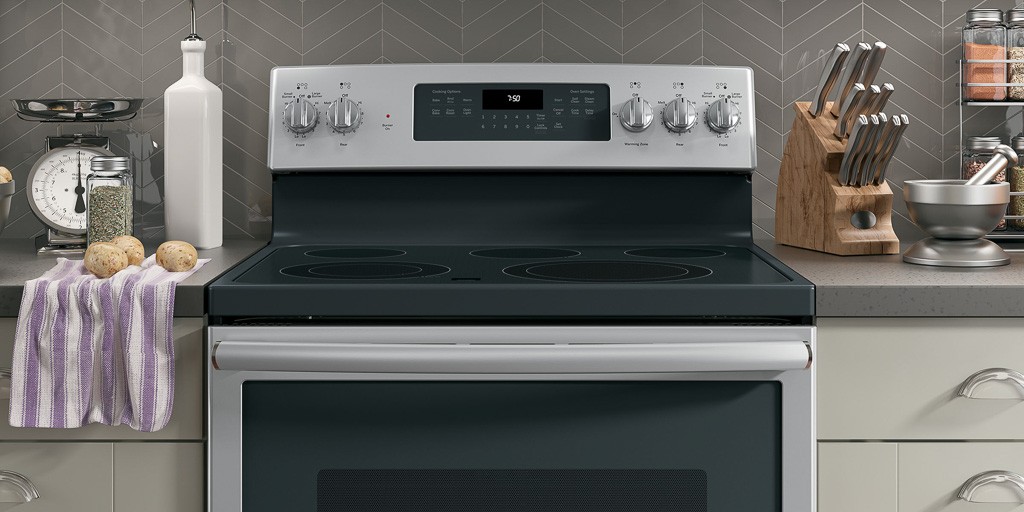 Source: nytimes.com
Source: nytimes.com
Statistics indicate that electric ovens and stoves consume 4% of energy in households. These two appliances can increase the temperatures in your home, and this also increases the workload of your air conditioning unit.
To reduce the power consumption of these two units, you can consider investing in a microwave, toaster oven, or a slow cooker. Besides, consider using these appliances when the temperatures are a bit low to reduce the workload of your AC unit. Always turn off the burners some minutes before your food is done, and allow the remaining heat to finish cooking your meal.
TV and media equipment
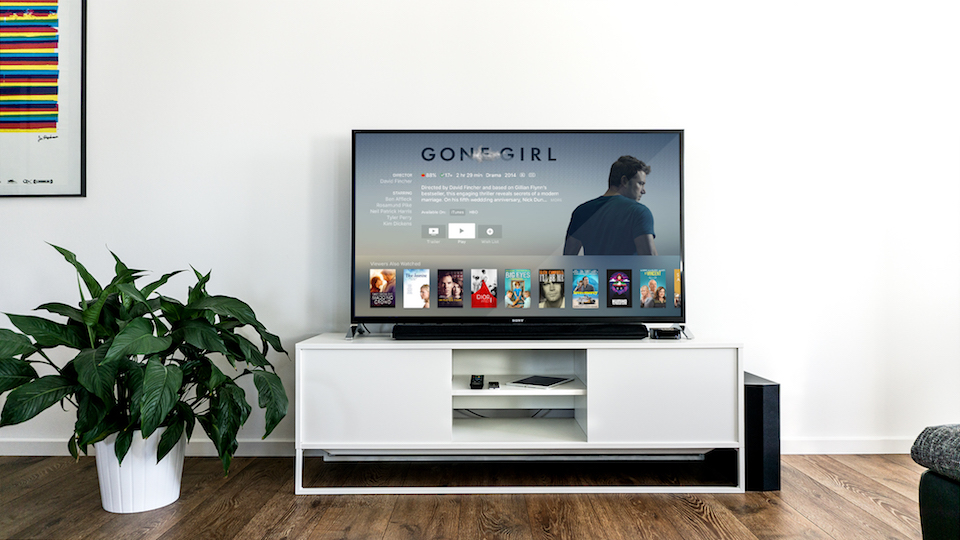 Source: guide.servify.in
Source: guide.servify.in
The entertainment equipment in your home contributes up to 4% of energy consumption in your home. Interestingly, the energy consumption can even increase in relation to the usage of these appliances. You should also note that these appliances also consume power when in standby mode.
To reduce the energy consumption of these appliances, first, consider buying electronics with Energy Star Certification. Moreover, reduce the brightness of TV and monitors, and then deactivate the standby mode. Switching off these appliances when not in use helps in reducing their power consumption too. Choosing energy-free entertainment activities like board games and reading can reduce the usage of these appliances—and this leads to reduces energy consumption.
Lighting appliances
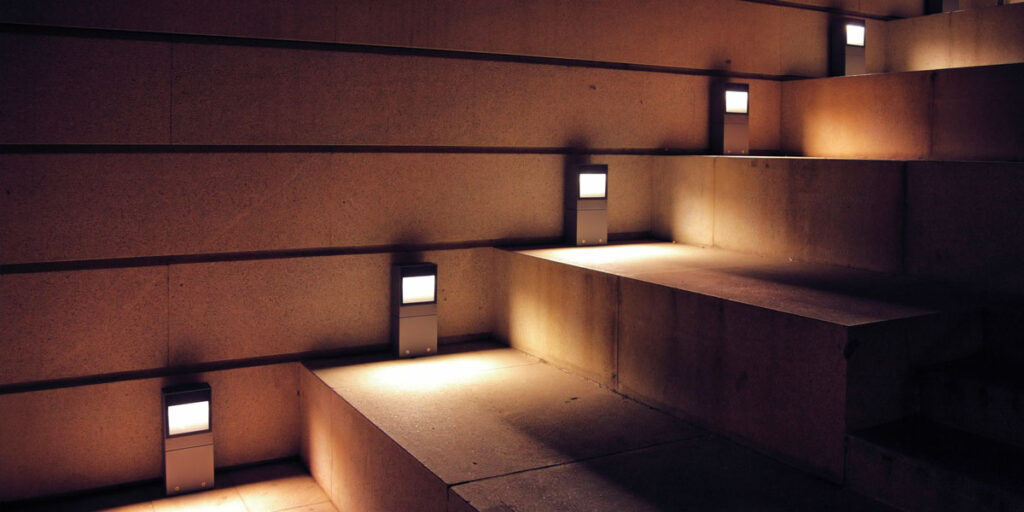 Source: nordlight.eu
Source: nordlight.eu
Lighting appliances account for an average of 4 – 9% of energy usage in our homes. Incandescent light bulbs, particularly, are the major culprits of this. When left on for about 2 hours each day, an incandescent light bulb consumes around 0.2 kWh, and this translates to 6kWh each month. This translates to an average of 240kWh per month with 40 bulbs in your home.
However, the following tips will assist you to save energy. First, switch off the lights if not in use. Also, replace your incandescent bulbs with LED bulbs which are more energy efficient. Moreover, capitalize on natural light during winter, as this also assists in warming your home. Lastly, invest in motion sensors on your outdoor lights, as this makes sure that the lights turn on only when needed.


